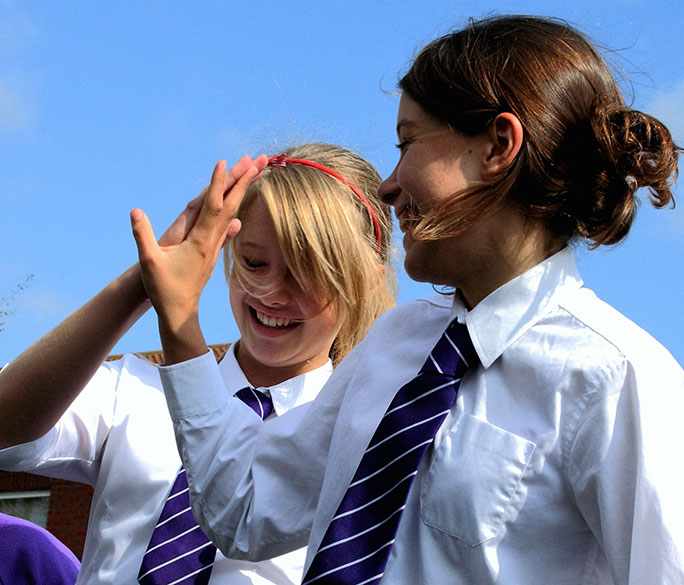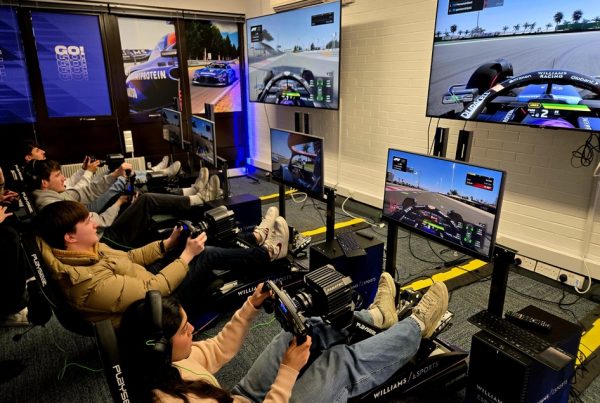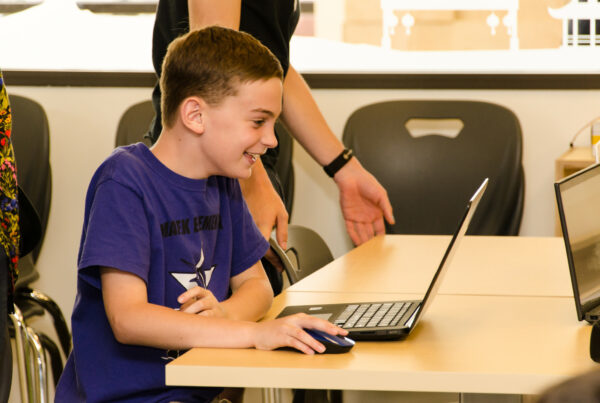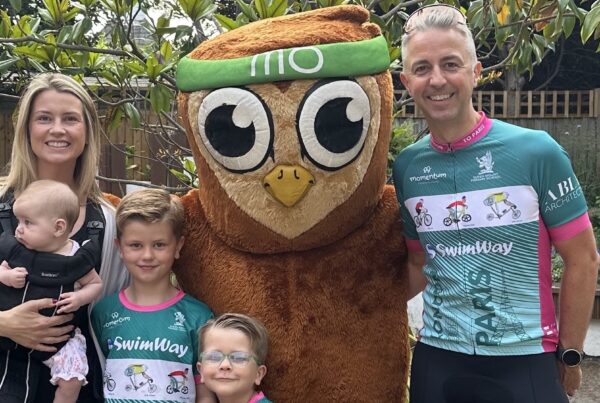“When girls fall out with each other in school, it can be really tough on them. It can feel like the end of the world, and also tough for the adults, teachers, and parents, who try to support them,” says Headteacher Andrew Hampton, who initiated the Girls on Board movement.
During the teenage years, a strong friendship group is like a personal support network. Good friends create a sense of belonging, security, and comfort, but problems in social circles can often cause more damage than we think if not handled correctly. The Girls on Board initiative encourages your daughter to be her own role model and work through her anxieties.
Typically, teachers use mediation techniques like ‘restorative justice’ and ‘conflict resolution’ to find solutions and heal rifts. If you talk to the girls, however, they will tell you that mediation usually just makes the situation worse. Girls feel that, because the teacher assumes that blame must be apportioned to purge the upset, they get told off when they have actually done nothing wrong. This assumption, they feel, is wrong and unhelpful. Friendship turbulence is not the same thing as bullying and an entirely different approach is needed if pastoral care staff are going to help. When faced with these problems Andrew Hampton, Headteacher of Thorpe Hall School in Essex, realised that the answer had to lie in empowering the girls to resolve their friendship issues and strengthen their social relationships for themselves. He created an innovative and altogether more effective way of supporting girls through friendship problems. The approach is called Girls on Board and it has now been adopted by over 140 schools across the UK.
Empathy
Though it is not a substitute for professional advice, Mr Hampton told the TES that “the approach has been extremely successful and that success has been recognised by a flurry of awards and shortlistings for Mental Health and Wellbeing over the last three years. Thorpe Hall School has been shortlisted for the TES Wellbeing Award for two years in a row, and Girls on Board has been the foundation stone of our work.”
Facilitated by teachers, the Girls on Board approach gathers girls together in workshops which prioritise empathy over conflict, togetherness over division, and commonality over individuality. Though they may, at first, feel uncomfortable spending time adressing their problems face-to-face, empathy is evoked in the girls by a series of discussions and role play exercises which examine typical scenarios and types of behaviour which cause relationship anxiety. This empathy then prompts the girls to look at their problems and circumstances objectively, and acknowledge the universal feelings they all share around forming secure and trusting friendships. Girls leave the Girls on Board sessions empowered to resolve their differences for themselves without the need for further adult intervention. The workshops are strictly non-judgmental and mention no names or stories.
No adults please
Adele O’Doherty, pastoral lead at Northampton High School for Girls blogged, “Our adoption of the Girls on Board programme to empower our pupils to tackle friendship problems with adult support, rather than interference, has been ground-breaking.” The Deputy Head of Gants Hill School wrote, “You have inspired me to take a fresh approach, and a step back from trying to unpick the minutiae of Snapchat messages, the peer pressure of social media, and so on. Putting the onus on the girls themselves to consider their role in the dynamic of a falling-out absolutely resonates with me.”
The approach works! All schools who have adopted the approach report reductions in relational aggression between teenage girls and smoother, healthy friendships. That means that teachers receive far fewer worried communications from home and that means significant reductions in workload for those teachers.
Going global
The approach has gone from strength to strength since its launch in 2017. Schools in both independent and state sectors, co-educational and all-girls, primary and secondary have found Girls on Board to be key in creating empowered and happier girls. The Lyford Cay School in the Bahamas recently became the first overseas school to become adopt the approach. Andrew Hampton, now in his 17th year of Headship commented, “All teachers are concerned to do the very best for girls in school and support them in their mental health. I can’t think of any better way to support girls than adopting the Girls on Board approach and empowering them to support themselves.”
Happier Girls Do Better
TES Award 2020 Finalist ‘Wellbeing Initiative of the Year’




